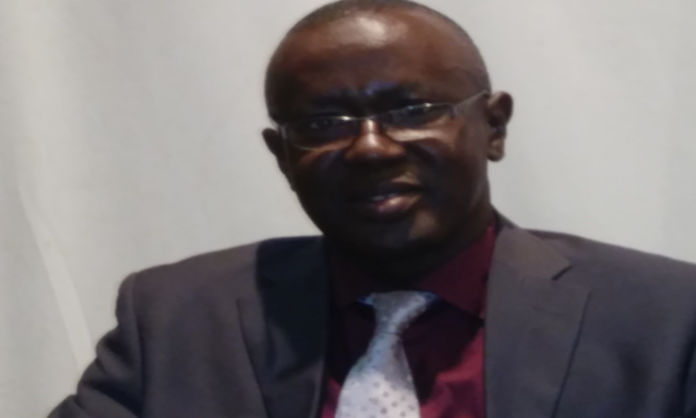By Momodou Jarju
The Gambia has embarked on the design of a National Financial Inclusion Strategy (NFIS) aimed at increasing access and usage of quality affordable digital financial services that will enhance poverty alleviation and spur inclusive growth and development.
Dr. Seeku Jaabi, first deputy governor of the Central Bank of The Gambia, said this is done through the help of United Nations Capital Development Fund’s Jobs, Skills and Finance Programme.
The UN Capital Development Fund (UNCDF) makes public and private finance work for the poor in the world’s 47 least developed countries (LDCs). The Gambia is part of the LDCs.
Dr. Jaabi said given the limited access to finance in The Gambia, there is need to develop a comprehensive and inclusive strategy to accelerate the level of financial inclusion, which requires evidence-based policies that are provided in the Finscope Gambia 2019 survey.
The Finscope Gambia 2019 survey provides an overview of financial behavior of Gambian adults in terms of how they generate income and how they manage their money.
“I have no doubt that it (the survey) will help build regulatory and legal reforms but also taking initiatives at broader stakeholder’s level to make formal financial services Available, Accessible and Affordable to the majority of the population in a timely and sustainable manner,” he said at the launch of the survey held at a local hotel in Kololi on Tuesday 26th November, 2019.
Dr. Jaabi said financial inclusion has become a major subject of great interest for policy makers, regulators, development partners, researchers and market practitioners.
He explained that in 2017, there were still 1.7 billion adults at the global stage without an account at a formal financial institution or a mobile money provider, with large proportion of these financially excluded found in Sub-Saharan Africa largely women and youths.
“The development of the NFIS is aligned to the main strategic pillars of the country’s National Development Plan 2018-2021 such as: stabilizing, stimulating growth and transforming the economy; making the private sector the engine of growth transformation and job creation; and reaping the demographic dividend through gender and youth empowerment,” he explained.
Lunana Kanasai, EU Representative, said financial inclusion means that individuals and businesses have access to useful and affordable financial products and services that meet their needs.
“Financial access facilitates day-to-day living, and helps families and businesses to plan for everything from long-term goals to unexpected emergencies,” she added.
Ms. Rebecca Simms, Programme Managerof JSF Programme, UNCDF The Gambia, said they are seeking to address several different development issues including lack of job opportunities specifically for women and youths, including low level of financial inclusion and also including climate change challenges.
“But our overall objective is inclusive and sustainable economic growth with a real focus on job creation,” she said.
Meanwhile, the diagnostic survey is commissioned by the United Nations Capital Development Fund (UNCDF), executed by Gambia Bureau of Statistic (GBoS) and analysed by FinMark Trust- an independent non-profit trust whose purpose is ‘Making financial markets work for the poor, by promoting financial inclusion and regional financial integration’.
It is an EU funded Jobs, Skills and Finance (JSF) for Women and Youth in The Gambia Programme highlighting the state of Financial Inclusion in The Gambia, providing credible benchmarks and guide targeted financial inclusion strategies.





















